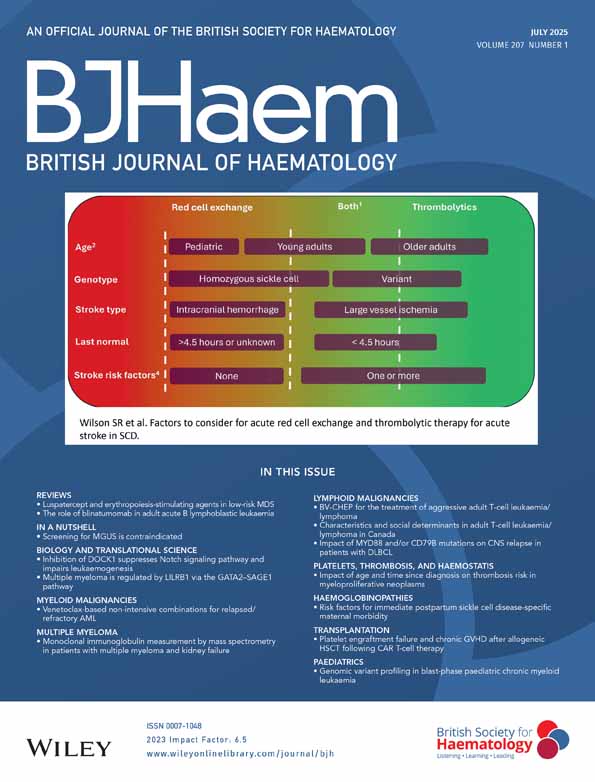Iron deprivation increases erythropoietin production in vitro, in normal subjects and patients with malignancy
Abstract
Although tissue hypoxia is the major stimulus for erythropoietin (EPO) production, serum EPO (sEPO) levels at any given Hb in iron-deficiency anaemia are relatively higher than in other anaemias. Iron chelators stimulate erythropoiesis in anaemia of chronic disease via unknown mechanisms. A recent study suggested that deferoxamine (DFO) regulates steady-state EPO RNA. Here we report that altered intracellular iron balance regulates EPO production both in vitro and in two unique clinical trials. In vitro, both iron chelation with DFO and blockade of Tf-mediated iron uptake with anti-Tf receptor antibody 42/6, stimulated EPO production in serum-deprived hepatoma cells. Conversely, iron repletion by haemin, inhibited EPO production in these cells. In clinical studies, sEPO levels rose in adult volunteers treated with DFO coupled to hydroxyethyl starch (HES-DFO) and in patients with advanced malignancy treated with anti-Tf receptor antibody 42/6, in a time- and dose-dependent manner. These studies indicate intracellular iron balance regulates EPO production in humans.




